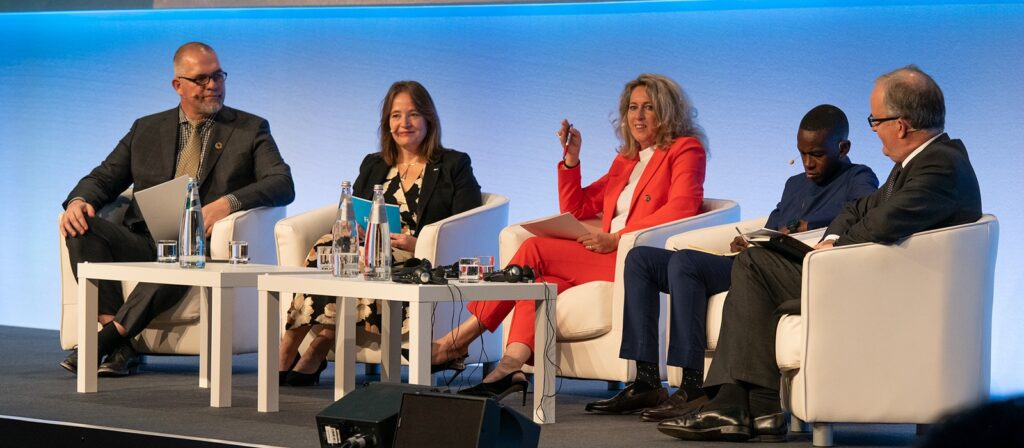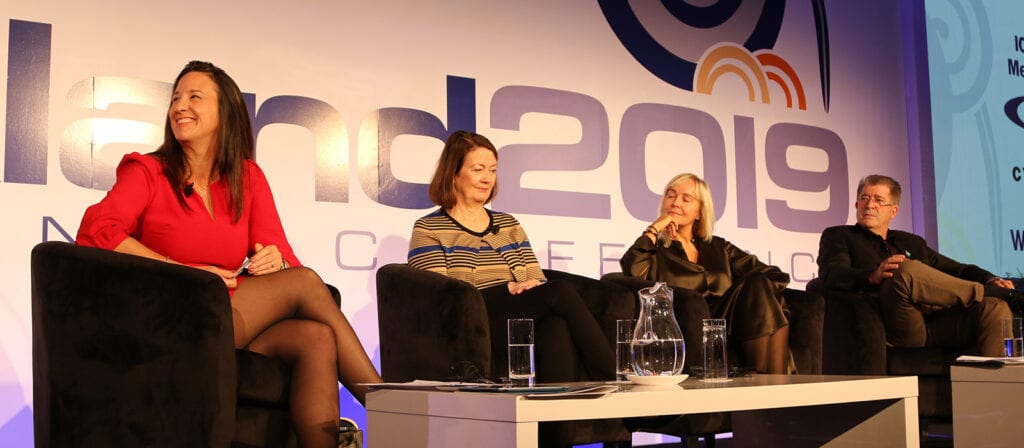MAS was formed in 1921 by a group of doctors and has since grown to serve 85% of medical practitioners in New Zealand. The organisation has expanded to include dentists, veterinary surgeons, and recently, it has begun to look into the wider market.
The recent shift in society thinking, provided MAS with an opportunity to explore how, as a businesses, it could work as part of their communities, rather than just alongside them. The organisation began to look at how they could leverage what they had to make a difference, and got permission from their members to change from a mutual to a charitable organisation, allowing them to free up funds for philanthropic purposes. Their purpose became to “inspire a healthier New Zealand (Aotearoa)”, addressing significant issues in inequity of health outcomes, information, education and services across communities which in turn had the terrible consequence of inequality of access. They seek to be a contributor to resolving the complex and system-based issues behind that.
MAS had a significant pivot transitioning to a charitable status. Previously they chose customer intimacy as their key differentiator, aiming to provide an outstanding level of service to their members, rather than operational excellence or product leadership. Technology was making that expensive and less likely to be a key differentiator. They began to see the emergence of the “conscious consumer” choosing who would provide goods to them based on values. With their assets and the power of 85% of the health practitioners in New Zealand behind them they had the opportunity to make a difference in their sector. They now look to make investments that would help the health sector and society, and in turn, provide them with a competitive differentiator.
For MAS, mutuality was their superpower and for many years they did not need to advertise at all. Now mutuality is not as important to their new target market; instead their purpose and alignment of values are the key factor in appealing to that market and also a differentiator in the war for talent.
Thrivent was founded in 1902 as a fraternal benefit society: an organisation that has the principles of mutuality and is owned by its members, but also help clients engage in local communities. This makes Thrivent special and attracts those that want to come to the aid of others. During the COVID-19 pandemic, Thrivent mobilised 1.9 million members, 11 million volunteers hours, raised USD 238 million to go back to local communities. Of that USD 238 million, Thrivent contributed USD 86 million, and they rest was raised by their members. Thrivent believe how they engage their clients and give back to the community is what distinguishes them from other mutuals.
Purpose has always been part of their DNA, and their purpose now is “We believe humanity thrives when people make the most of all they’ve been given”. Their heritage in Lutheran faith, but they have now opened that up to all Christians. Thrivent’s view is that mutual companies are good corporate citizens that mobilise their workforce and their clients to respond to the needs of local communities, and do it from the heart. Their purpose needed to be inclusive because it included their clients.
Thrivent includes the charitable work they do as part of the operating budget. They look at 10 years of tax rates, average those rates, and apply that to the fraternal budget. The annual fraternal budget is approximately USD 185-200 million a year, which is then multiplied by the efforts of Thrivent’s clients. Pre-pandemic they averaged 150,000 events annually, including building homes with Habitat for Humanity.
Thrivent found that clients do not use language such as mutual or fraternal, but rather they feel an emotional connection with the organisation because how Thrivent empowers them to do good in the community.
Royal London was formed 1851, to allow people to save towards the cost of funerals. Since that time the business has changed signifcantly, including going through several acquisitions and is now one of the biggest providers of life insurance, pensions and investment markets in the UK (and the largest mutual insurer).
When the new Group CEO Barry O’Dwyer joined the organisation in 2019, he felt that Royal London hid their mutuality and did not have the pride in the mutual model he expected. He set about changing this in 2019 and 2020, working with thousands of colleagues across the business to co-create a new purpose through workshops, “pop-up purpose cafes” and employee surveys. The result was a new purpose: “Protecting today, investing in tomorrow. Together we are mutually responsible”. This speaks to Royal London’s mutuality; their responsible investment credentials; and creates the sense that it exists to help people who help themselves. Royal London is currently on a journey of embedding its purpose across the business.
When developing its purpose, the CEO felt strongly that the organisation (like all mutuals) needed to be careful that it did not become more about the colleague than the customer. He was keen to draw a clear distinction that Royal London was a mutual business and not a charity; and whilst they do a great deal of charitable work, giving give 1% of their profits to charity and participating in social impact work, they are first and foremost a commercial business. The organisation needed to focus on people in society that needed help: rather than being there for everyone, they decided to be there to help people who want to help themselves. People, who through no fault of their own, had fallen on hard times.
While Royal London runs the business to make a profit, they share those profits with their members. It is a priority to build the customer relationship so customers understand that they are with a mutual and the benefits that come with that. They articulate this with their members, explaining the good a mutual can do; how they can help customers with financial resilience; and to help build a sustainable world. Royal London are finding that this resonates with the younger generation who are seeking to invest their money with purpose-driven organisations.
Session panellists
- Barry O’Dwyer, Group CEO, Royal London (UK)
- Teresa Rasmussen, President and CEO, Thrivent (USA)
- Martin Stokes, CEO, MAS (New Zealand)
- Penney Frohling, EY-Parthenon Partner, Financial Services Strategy, EY (UK) moderator





